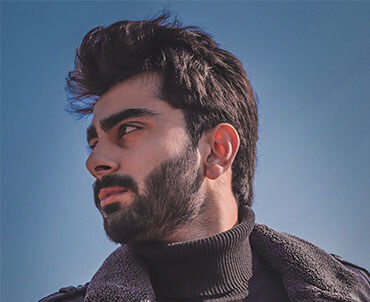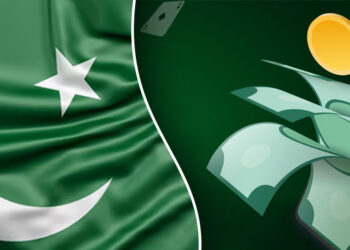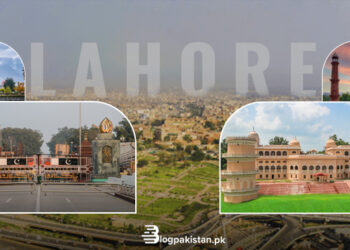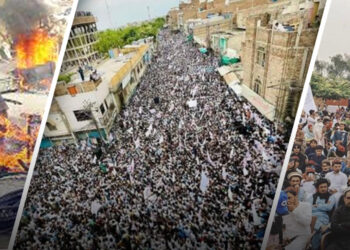The president of Pakistan is the head of state, elected by the senate, national assembly, and provincial assembly for a period total of five years. In Pakistan, the president is kept informed by the prime minister of Pakistan on all matters of internal and foreign policy, as well as all legislative proposals. The official residence and principal workplace of the President is Aiwan-e-Sadr located in northeastern Islamabad.
List of Presidents of Pakistan
Since its independence, Pakistan has had 13 presidents. Here’s a complete list of presidents of Pakistan.
| Names of Presidents | Tenure | No in the List | Time of Service |
| Iskander Mirza | 23 March 1956 – 27 October 1958 | 1 | 2 Years, 7 Months |
| Ayub Khan | 27 October 1958 – 25 March 1969 | 2 | 10 Years, 4 Months |
| Yahya Khan | 25 March 1969 – 20 December 1971 | 3 | 2 Years, 8 Months |
| Zulfiqar Ali Bhutto | 20 December 1971 – 13 August 1973 | 4 | 1 Year, 7 Months |
| Fazal Ilahi Chaudhary | 13 August 1973 – 16 September 1978 | 5 | 5 Years, 1 Month |
| Muhammad Zia ul Haq | 16 September 1978 -17 August 1988 | 6 | 9 Years, 11 Months |
| Ghulam Ishaq Khan | 17 August 1988 – 18 July 1993 | 7 | 4 Years, 11 Months |
| Farooq Ahmad Khan Leghari | 14 November 1993 – 2 December 1997 | 8 | 4 Years |
| Muhammad Rafiq Tarar | 1 January 1998 – 20 June 2001 | 9 | 3 Years, 5 Months |
| Parvez Musharraf | 20 June 2001 – 18 August 2008 | 10 | 7 Years, 1 Month |
| Asif Ali Zardari | 9 September 2008 – 8 September 2013 | 11 | 5 Years |
| Mamnoon Hussain | 9 September 2013 – 3 September 2018 | 12 | 4 Years, 11 Months |
| Arif Alvi | 4 September 2018 – Present | 13 | 2 Years and Counting |
1. Iskander Mirza

Iskander Mirza of the Republic party became the first leader to be titled the president of Pakistan, in 1956. However, after two and a half years of presidency, Sir Iskander Mirza was taken over by General Ayub Khan, in the light of martial law.
After his resignation from politics, Mirza moved to the United Kingdom where he spent the rest of his time and died in 1969.
Moreover, some Pakistani historians are of the opinion that Iskander Mirza was responsible for the weakening democracy and political instability in the state.
Total duration: 2 Years, 7 Months
In-Office: 23 March 1956 – 27 October 1958
Status: Elected president
Political Party: Republic party
2. Ayub Khan
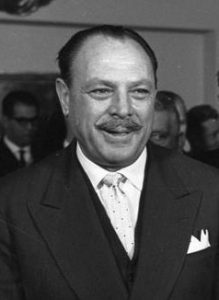
The first general to enter into politics, Ayub Khan became the second president of Pakistan, after dismissing Iskander Mirza. However, the extreme protests and labor strikes that were supported by the cause of East Pakistan resulted in his forced resignation in 1969.
Ayub Khan was transferred from British Indian Army to Pakistan Army after partition and became the first commander in chief of Pakistan. He supported the former president’s decision of imposing martial law against the then prime minister, Feroze Khan. In the process, he took the president’s seat.
Talking about his legacy, Pakistanis has mixed opinions about his ruling period. When some appreciate the General for his law and order conditions as well as economic well-being, others criticize him for welcoming the intelligence agency’s invasions into national politics.
Total duration: 10 Years, 4 Months
In-Office: 27 October 1958 – 25 March 1969
Status: Military Dictator
Political Party: None [Army General]
3. Yahya Khan
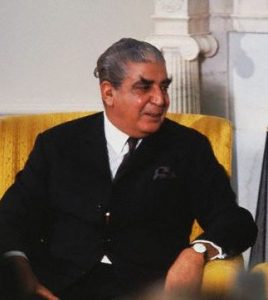
Agha Muhammad Yahya Khan, who was appointed commander in chief by General Ayub Khan, became the third president of Pakistan. Yahya Khan took the presidency of former dictator Ayub Khan and enforced martial law in the country. Additionally, Yahya khan also held the first nationwide general elections that caused the separation of East Pakistan, now known as Bangladesh. Hence, his rule is widely regarded as a leading cause of the break-up of the unity of Pakistan.
He died in Rawalpindi, in 1980.
Total Duration: 2 Years, 8 Months
In-Office: 25 March 1969 – 20 December 1971
Status: Military Dictator
Political Party: None
4. Zulfiqar Ali Bhutto
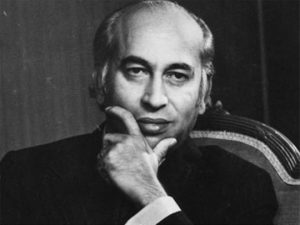
Zulfiqar Ali Bhutto, the founder of the renowned political movement Pakistan People’s party was given dictatorship by Yahya Khan after he disposed of martial law. Bhutto served the then torn apart Pakistan with great passion and patriotism and rebuilt the deranged citizens into a strong nation. Bhutto was executed by Gen. Zia after being on death trials for a very long duration after he was falsely accused of murdering his opponent.
Bhutto remains a controversial and largely discussed figure in Pakistan. While he was hailed for his nationalism, Bhutto was roundly criticized for intimidating his political opponents. Nevertheless, Bhutto’s political party still remains the top-notch political party of Pakistan, governed by his grandson Bilawal Zardari.
Total Duration: 1 Year, 7 Months
In-Office: 20 December 1971 – 13 August 1973
Status: Elected democratically
Political Party: Pakistan People’s Party
5. Fazal Ilahi Chaudhary
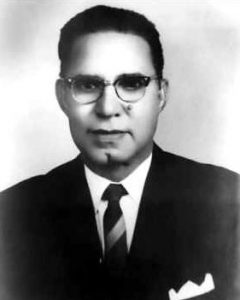
Fazal Ilahi, the fifth president and first speaker of the national assembly of Pakistan joined the politics with Muslim League Party. Nonetheless, in 1973, he won the ticket of the president from PPP and ended up joining it. Furthermore, Fazal Ilahi was the first president with lesser powers than the prime minister, as decided in the constitution of 1973.
Total Duration: 5 Years, 1 Month
In-Office: 13 August 1973 – 16 September 1978
Status: Elected democratically
Political Party: Pakistan People’s Party
6. Muhammad Zia ul Haq

Zia ul Haq, the four-star general embraced the presidency after imposing martial law in 1978. He was killed along with several of his top military officials and two American diplomats in a mysterious plane crash near Bahawalpur on 17 August 1988.
Zia ul Haq remains the longest-serving head of state till present, for almost 10 years, as his reign terminated with his death.
Total Duration: 9 Years, 11 Months
In-Office: 16 September 1978 -17 August 1988
Status: Military Dictator
Political Party: None
7. Ghulam Ishaq Khan

The oldest person to serve as president, bureaucrat Ghulam Ishaq took the dictatorship after Gen Zia’s death. As president, Khan was marred with political struggle with Prime Minister Benazir Bhutto who attempted for pushing the bill to reverse the Eighth Amendment to the Constitution of Pakistan. Furthermore, Khan was in a conflict with Prime Minister Bhutto in two areas; the appointment of the military chiefs of staff and the Justices of the Supreme Court of Pakistan. Khan consolidated his position in controlling the nuclear deterrence program, keeping all the control over its direction.
Total Duration: 4 Years, 11 Months
In-Office: 17 August 1988 – 18 July 1993
Status: Elected democratically
Political Party: Independent
8. Farooq Ahmad Khan Leghari

First Baloch elected president; Farooq Leghari worked under Benazir Bhutto as her deputy Leader of the Opposition and participated in general elections held in 1993. His credentials and “clean reputation” as opposed to politicians accused of mass corruption and white-collar crimes won him the support from Prime Minister Bhutto and Pakistan Peoples Party (PPP). In November 1993, Sardar Farooq Leghari was appointed as the President of Pakistan for a term of five years.
Total Duration: 4 Years
In-Office: 14 November 1993 – 2 December 1997
Status: Elected democratically
Political Party: Pakistan People’s Party
9. Muhammad Rafiq Tarar

Being the retired judge of the Supreme Court at that time, Muhammad Rafiq Tarar was assigned the ninth president in 1998. It was during his time; Pervez Musharraf led a coup against former Prime Minister Nawaz Sharif.
Muhammad Tarar was also accused by Benazir Bhutto of illegally legitimizing the dismissal of his government as a judge of the Supreme Court of Pakistan.
Total Duration: 3 Years, 5 Months
In-Office: 1 January 1998 – 20 June 2001
Status: Elected democratically
Political Party: Pakistan Muslim League (N)
10. Parvez Musharraf

Retired four-star general and one of the most acclaimed leaders of Pakistan, General Parvez Musharraf served as a president from 2001, ruling the state with a great passion for eight years of his life.
Additionally, Musharaf had been indicted in several cases. The first case was subverting and suspending the constitution, and the second was a Federal Investigation Agency probe into the conspiracy to assassinate Bhutto. Furthermore, on 2 September 2013, a first information report (FIR) was registered against him for his role in the Lal Masjid Operation in 2007.
Currently, Musharraf lives in Dubai and is fighting a rare illness amyloidosis.
Total Duration: 7 Years, 1 Month
In-Office: 20 June 2001 – 18 August 2008
Status: Military Dictator
Political Party: Later affiliated with Pakistan Muslim League (Q)
11. Asif Ali Zardari
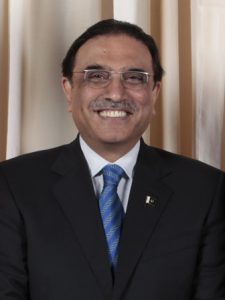
Son in law to Zulfiqar Bhutto, current president of Pakistan People’s Party, Asif Ali Zardari has also served the country as president in old times.
Zardari rose to prominence after his marriage to Benazir Bhutto in 1987, who became the Prime Minister of Pakistan after her election in 1988.
Total Duration: 5 Years
In-Office: 9 September 2008 – 8 September 2013
Status: Elected democratically
Political Party: Pakistan People’s Party
12. Mamnoon Hussain

Pakistani politician and businessman, Mamnoon Hussain was the elected president of Pakistan, during Nawaz Sharif’s governance. As a president, Hussain maintained a low-key profile and was rarely seen interfering in politics.
Here to mention, Hussain was elected governor of Sindh during Rafiq tarar’s rule.
Total Duration: 4 Years, 11 Months
In-Office: 9 September 2013 – 3 September 2018
Status: Elected democratically
Political Party: Pakistan Muslim League (N)
13. Arif Alvi
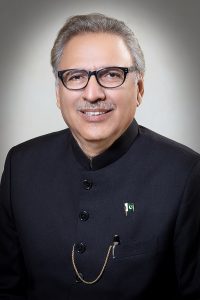
Arif-ur-Rehman Alvi, the current president of Pakistan is a dentist by profession. He was one of the founding members of Pakistan Tehreek-e-Insaaf and held a seat in the national assembly from June 2013 till the present. He is the third President of Pakistan whose family migrated to Pakistan from India after the Partition of India. In 2018, he started the Presidential Initiative for Artificial Intelligence and Computing (PIAIC).
Total Duration: 2 Years and Counting
In-Office: 4 September 2018 – Present
Status: Elected democratically
Political Party: Pakistan Tehreek e Insaaf
If you feel there is some missing information, do let us know in the comments below.

